Change Supply
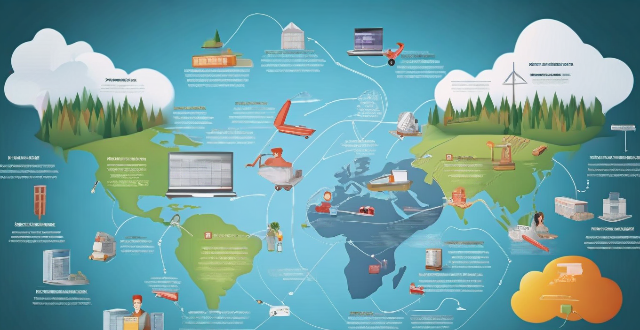
What are some best practices for managing risk associated with climate change in a global supply chain ?
This article outlines best practices for managing risk associated with climate change in a global supply chain. It suggests assessing climate change risks by identifying potential impacts and evaluating vulnerabilities, developing a risk management plan that includes setting clear objectives and implementing mitigation measures, and monitoring and reviewing performance through tracking progress against objectives and continuously improving strategies. Key strategies include diversifying supplier networks, investing in resilient infrastructure, improving energy efficiency, enhancing supply chain transparency, promoting sustainable practices, establishing regular reporting processes, benchmarking against industry standards, soliciting stakeholder feedback, revising risk management plans regularly, participating in collaborative learning opportunities, and fostering a culture of innovation within the organization.

What are the impacts of global warming on agricultural production and food supply ?
This article discusses the impacts of global warming on agricultural production and food supply, including changes in climate patterns, reduced crop yields, loss of biodiversity, decreased nutrient content, heat stress in livestock, changes in feed availability, increased risk of disease, reduced food availability, increased food prices, and food safety concerns.
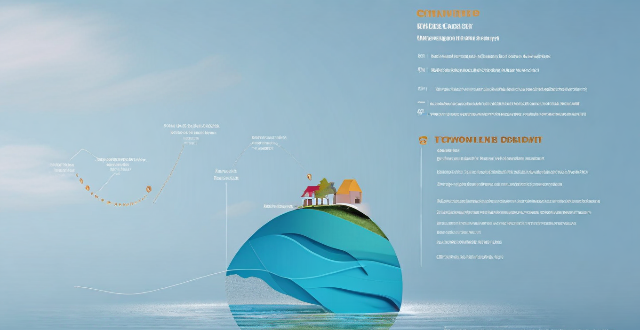
How does climate change affect global supply chain management ?
Climate change affects various aspects of life, including global supply chain management. Extreme weather events, rising sea levels, changes in agricultural production, energy costs, and labor availability are some ways in which climate change impacts this crucial aspect of business operations. Businesses must adapt their strategies to mitigate these risks and ensure the continued efficiency and effectiveness of their operations.

How can smart contracts improve supply chain management ?
Smart contracts can revolutionize supply chain management by automating transactions, enhancing transparency, improving efficiency, enabling real-time tracking, and reducing risks. This decentralized and automated approach can save time, reduce costs, prevent fraud, and improve overall trust between parties in the supply chain.
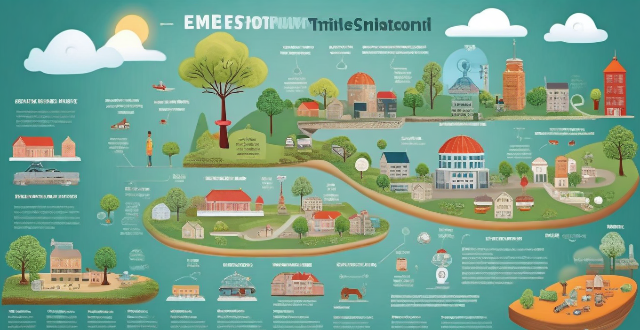
What are the economic implications of investing in climate-resilient supply chain infrastructure ?
This article explores the various economic implications of investing in climate-resilient supply chain infrastructure. It highlights how such investments can lead to cost savings, increased productivity and efficiency, improved insurance rates, enhanced supply chain visibility, and competitive advantage. The article also emphasizes the importance of building a strong brand reputation and accessing new markets through sustainable and resilient practices. Overall, it underscores the significance of prioritizing investments in climate-resilient supply chain infrastructure for businesses and economies around the world.
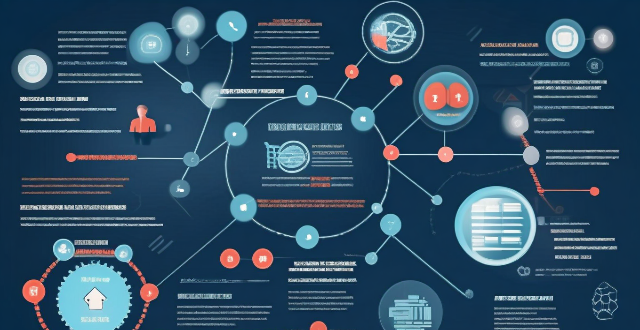
How can blockchain solve the issue of supply chain management ?
Blockchain technology can revolutionize supply chain management by addressing various challenges faced by businesses. It improves visibility and traceability, reduces paperwork and manual processes, streamlines payment processes, enhances data security, and builds trust among stakeholders. With its potential to solve many of the issues faced by businesses in supply chain management, blockchain is an ideal solution for modern supply chains.

What role does technology play in ensuring a continuous supply of sustainable energy ?
The text discusses the pivotal role of technology in securing a consistent supply of sustainable energy. It highlights how technology enhances efficiency, reduces costs, mitigates environmental impacts, boosts energy security, and fosters innovation and job creation in the renewable energy sector.

How does global shopping change with holiday seasons ?
The holiday season significantly impacts global shopping trends, affecting consumer behavior, marketing strategies, and supply chain operations. Key changes include increased spending, a shift to online shopping, targeted advertising, adapted supply chains, evolving product demands, workforce adjustments, sustainability concerns, and digital transformation. Retailers must adapt to these changes to meet consumer expectations and maximize sales success.

What policies and regulations are currently in place to encourage more sustainable supply chain practices ?
Policies and Regulations Encouraging Sustainable Supply Chain Practices discusses various government initiatives, industry standards, and international agreements that promote sustainable supply chain practices. Government policies such as green procurement, carbon pricing, and eco-labels incentivize businesses to adopt environmentally friendly operations. Industry standards like CSR and LCA help companies understand and reduce their ecological footprint. International treaties like the Paris Agreement and Basel Convention provide a global framework for sustainable practices. Together, these measures form a comprehensive system to support sustainable supply chains worldwide.
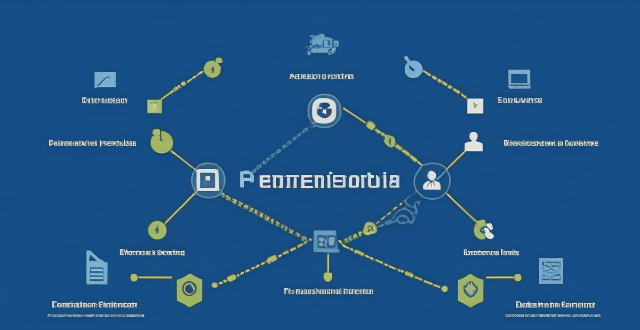
How do geopolitical factors influence the sustainability efforts of global supply chains ?
Geopolitical factors significantly influence sustainability efforts in global supply chains by affecting trade policies, political stability, resource control, infrastructure development, and cultural attitudes towards sustainability. These elements determine the costs, efficiency, and environmental impact of global production networks. Understanding these dynamics is vital for businesses aiming to build resilient and sustainable supply chain operations.

How do circular economy principles apply to supply chain management, and what benefits do they bring in terms of climate change adaptation ?
The circular economy is a regenerative system that replaces the "end-of-life" concept with reducing, alternatively reusing, sharing, repairing, refurbishing, remanufacturing and recycling existing materials and products. This approach minimizes waste and pollution, extends product lifecycles, and helps to mitigate climate change. In supply chain management, applying circular economy principles can bring significant benefits in terms of climate change adaptation. The key principles of circular economy in supply chain management include design for recycling and reuse, extended producer responsibility (EPR), circular procurement, collaborative partnerships, resource efficiency, digital tracking and transparency, reduction in greenhouse gas emissions, conservation of natural resources, increased resilience, innovation and economic opportunities, and improved waste management. By adopting these practices, organizations can contribute to a more sustainable economy that reduces environmental impacts and builds resilience against the effects of a changing climate.

How can businesses measure and report their environmental performance throughout their supply chains ?
Measuring and reporting environmental performance in supply chains involves setting clear objectives, conducting a baseline assessment, developing an action plan, implementing and monitoring progress, and reporting performance transparently. Adopting standardized metrics, engaging stakeholders, and continuously improving are best practices to effectively manage environmental impact throughout the supply chain.

What are the benefits and challenges of using drones for medical supply delivery ?
**Benefits of Using Drones for Medical Supply Delivery:** - **Increased Efficiency:** Drones can cover large distances quickly and bypass obstacles. - **Accessibility to Remote Areas:** Ideal for reaching rural or disaster-affected regions. - **Cost Savings:** Lower manpower and operational costs compared to traditional methods. - **Improved Safety:** Eliminates human errors and operates in hazardous conditions. - **Real-Time Tracking:** Ensures accountability and peace of mind for senders and recipients. **Challenges of Using Drones for Medical Supply Delivery:** - **Regulatory Issues:** Strict regulations and complex permit processes limit drone operations. - **Technical Constraints:** Limited load capacities, battery life, and weather conditions affect reliability. - **Security Concerns:** Risks of interception and tampering with cargoes. - **Public Perception:** Addressing privacy concerns and gaining public acceptance is essential. - **Infrastructure Development:** Significant investment required for support infrastructure.

What is the role of consumers in driving more sustainable supply chain practices through their purchasing decisions ?
Consumers play a crucial role in driving more sustainable supply chain practices through their purchasing decisions. By choosing products that are produced using environmentally friendly and socially responsible methods, consumers can influence companies to adopt more sustainable practices throughout their supply chains. This can lead to reduced carbon emissions, improved working conditions, and better resource management. The key points include education and awareness, green consumerism, supplier selection, product design, brand loyalty, public pressure, regulatory influence, investor interest, innovation, and collaboration.

Can sustainable supply chain practices help reduce carbon emissions and combat climate change ?
Sustainable supply chain practices can play a crucial role in reducing carbon emissions and combating climate change. By focusing on resource efficiency, waste reduction, transportation optimization, supplier management, lifecycle assessment, renewable energy adoption, and employee involvement, companies can significantly lessen their environmental impact. These efforts not only contribute to global sustainability goals but also offer potential reputational, efficiency, and cost benefits for businesses.

In what ways can businesses engage in sustainable supply chain management as a key component of their CSR programs ?
The text discusses the importance of sustainable supply chain management in corporate social responsibility (CSR) programs. It emphasizes setting clear objectives and goals, conducting supplier audits and assessments, collaborating with suppliers, measuring performance and reporting results, and continuously improving and innovating as key steps in sustainable supply chain management. The text suggests that these practices can help businesses demonstrate their commitment to sustainability while also improving their bottom line.

What strategies can companies implement to mitigate the impact of climate change on their supply chains ?
Companies can mitigate the impact of climate change on their supply chains by conducting a climate risk assessment, developing sustainable sourcing policies, implementing energy efficiency measures, investing in renewable energy sources, collaborating with suppliers and partners, monitoring performance, encouraging innovation and technology adoption, and engaging with stakeholders.

How has the COVID-19 pandemic highlighted the importance of resilient supply chain management in the face of climate-related disruptions ?
The text discusses the impact of the COVID-19 pandemic on supply chain management and emphasizes the importance of resilient supply chain management to withstand future climate-related disruptions. The pandemic caused significant disruptions in the global supply chain, including disruption of global trade, bottlenecks, shortage of raw materials, and labor shortages. A resilient supply chain is adaptable, diversified, collaborative, and leverages technology to improve efficiency, reduce waste, and increase transparency. These characteristics ensure that the supply chain can withstand not only the current crisis but also future climate-related disruptions.

How can suppliers be motivated to adopt more eco-friendly practices in their operations to support a greener supply chain ?
**Motivating Suppliers to Adopt Eco-Friendly Practices** In today's world, environmental sustainability has become a global concern, and businesses are increasingly looking towards greener supply chains. However, the success of a green supply chain largely depends on the suppliers' willingness to adopt eco-friendly practices. This article provides strategies for motivating suppliers to embrace sustainable operations, including financial incentives, collaborative approaches, transparency and accountability, technology and innovation, and regulatory compliance. By implementing these strategies, businesses can effectively motivate their suppliers to adopt eco-friendly practices, which not only benefits the environment but also enhances business reputation and customer satisfaction.

What are the potential risks of climate change for the insurance sector ?
Climate change poses significant threats to the insurance sector, including increased natural disasters, changes in liability exposures, property value fluctuations, and regulatory/legal changes. Insurers must adapt by assessing risks, updating policies, and collaborating with governments to create effective strategies.
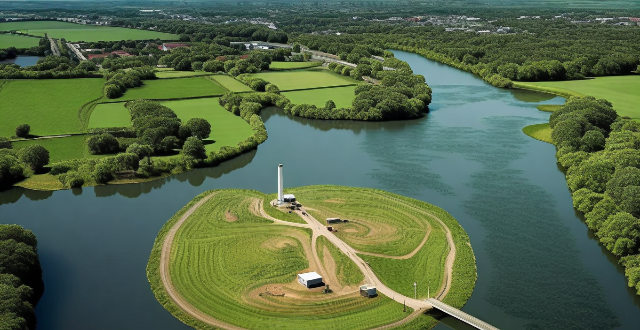
Can blockchain technology help combat climate change ?
Blockchain technology can contribute to the fight against climate change by enhancing transparency, efficiency, and traceability in areas such as carbon credit trading, renewable energy management, and sustainable supply chain management. However, challenges related to scalability, energy consumption, and regulation must be addressed to fully realize its potential benefits.
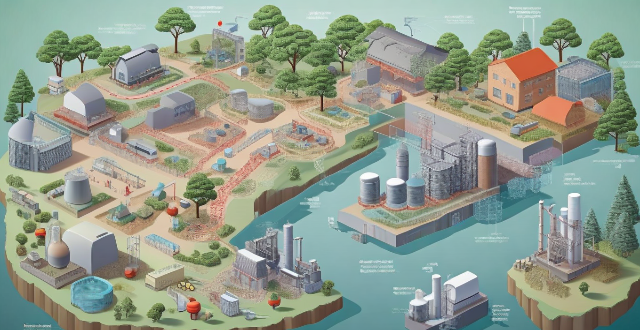
How is climate change affecting the insurance industry ?
Climate change is significantly impacting the insurance industry by increasing natural disasters, altering liability exposures, and prompting regulatory changes. Insurers must adapt to these challenges by updating risk assessment models, complying with new regulations, shifting investment portfolios towards sustainability, and innovating products. This adaptation is crucial for insurers' financial resilience and their role in aiding societal adaptation to climate change.
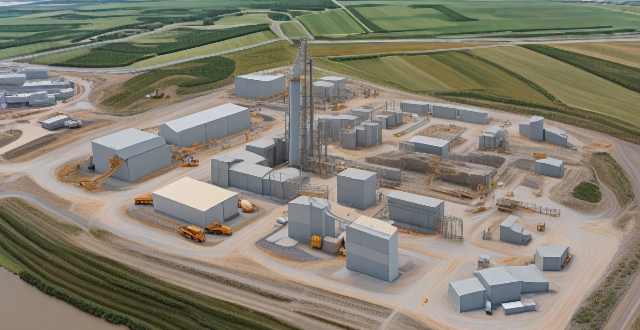
How does climate change affect the construction industry ?
Climate change affects the construction industry in various ways, including increased extreme weather events leading to damage and costly repairs, changes in building codes and standards due to new environmental conditions, a focus on energy efficiency and sustainability, potential disruptions to labor availability and supply chains, and increased insurance costs. Builders and developers must adapt by embracing new technologies and practices that promote sustainability and resilience.

How does climate change affect small businesses and their employees ?
Climate change impacts small businesses and employees through increased costs, disrupted supply chains, health issues, changes in customer behavior, adaptation challenges, and opportunities for innovation. Rising energy prices and insurance premiums add financial strain, while unpredictable weather patterns and extreme temperatures affect productivity and supply chains. Employee health is also impacted by heat stress and air quality issues. However, there are opportunities for small businesses to tap into niche markets and adopt eco-friendly solutions.

What are the potential impacts of climate change on different sectors ?
Climate change affects various sectors differently. In agriculture, changes in crop yields, shifts in planting seasons, increased pest and disease pressure, and water scarcity may occur. Health issues include heat-related illnesses, spread of diseases, air quality problems, and mental health concerns. Economic impacts involve job losses, infrastructure damage, supply chain disruptions, and investment risks. Environmental effects encompass loss of biodiversity, ocean acidification, deforestation, and sea level rise. It is crucial for all stakeholders to take measures to mitigate these impacts and adapt to the changing climate.
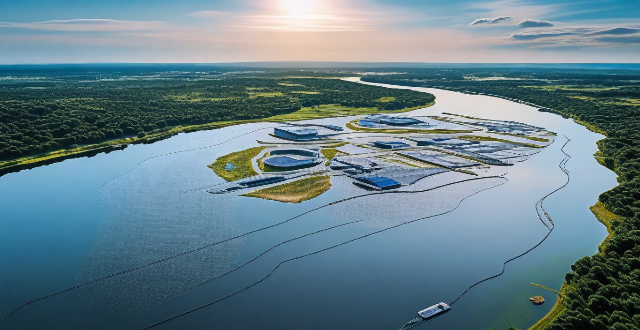
How does climate change affect water resources and availability ?
Climate change affects water resources and availability through melting glaciers, changes in precipitation patterns, sea level rise, increased evaporation rates, and impacts on ecosystems. These impacts can lead to water scarcity, flooding, contamination of freshwater sources, and declines in biodiversity. To mitigate these effects, it is important to reduce greenhouse gas emissions and implement adaptation strategies such as improved water management and conservation measures.

How does climate change influence the operational environments for defense forces ?
Climate change is significantly impacting the operational environments for defense forces, affecting military planning, strategy, and tactics. Extreme weather events are becoming more frequent, requiring defense forces to manage or support disaster response operations. Changes in terrain and landscape due to melting ice caps and rising sea levels can affect military operations. Climate change can exacerbate social tensions and conflicts over resources, leading to internal displacement and potential security threats. Health risks and disease spread can expand due to changes in temperature and rainfall patterns. Energy requirements and logistics may need adjustments in operational environments affected by climate change.

How do military strategies need to adapt to address the consequences of climate change ?
The text discusses the challenges and adaptations necessary for military strategies to account for the consequences of climate change. It emphasizes the need for impact assessments, operational planning, training and preparation, technology and innovation, cooperation and diplomacy, and readiness and response. Key points include understanding how climate change affects specific regions, developing resilient supply chains and adaptive infrastructure, incorporating climate change into training scenarios, utilizing advanced predictive tools, working with allies and international organizations, and establishing rapid response capabilities. By integrating these elements into defense policy, militaries can remain effective and resilient in the face of a changing climate.
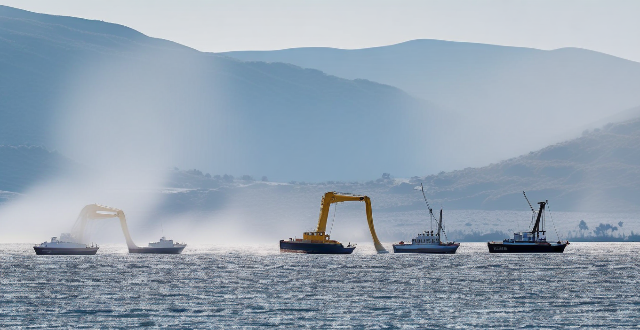
How has the issue of climate change impacted international trade and commerce ?
Climate change has significant impacts on international trade and commerce, including disruptions to supply chains due to extreme weather events, changes in agricultural production affecting food security and prices, infrastructure damage leading to increased costs for businesses, rising energy costs as countries transition to renewable sources, carbon emissions regulations requiring companies to invest in new technologies, and changing consumer behavior demanding sustainable products. Businesses must adapt to these changes to remain competitive and ensure long-term sustainability.